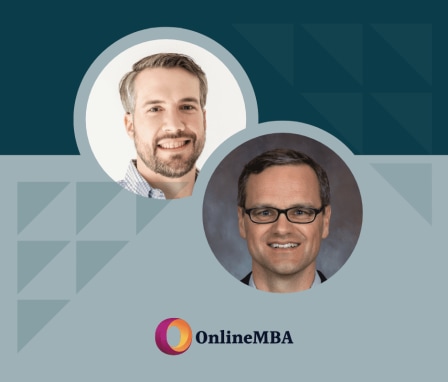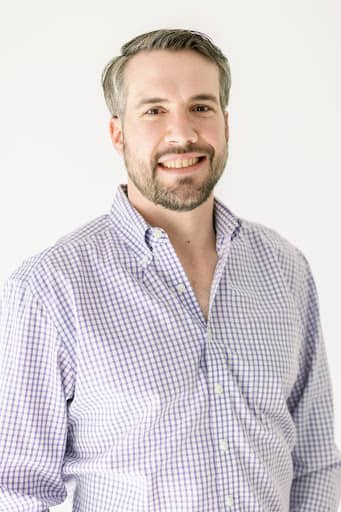
Richard Branson, founder of Virgin Group, and Barbara Corcoran, real estate mogul and "Shark Tank" investor, have some things in common: They are famous entrepreneurs — and neurodivergent. Branson has ADHD and dyslexia, while Corcoran is dyslexic.
Other successful neurodivergent entrepreneurs include Lee Chambers, founder of British company, Essentialise Workplace Wellbeing, and Dr. Angel Durr, CEO and founder of DataReady DFW.
About 15-20% of the population is neurodivergent, according to a 2020 British Medical Bulletin study. It's estimated that around 10% of people have dyslexia, 5% have ADHD, and 1-2% have autism.
Find out what neurodiversity means and the difference between being neurodivergent vs. neurotypical. Learn about strengths and misconceptions from two neurodivergent entrepreneurs and tips for those interested in entrepreneurship.
What is Neurodiversity?
Neurodiversity is the view that people's brains naturally work differently and there's no correct way of thinking, processing, and learning.
It's not a new term — Judy Singer, a sociologist who is autistic, first coined the word in the late 1990s to highlight that neurological diversity exists.
Researchers note that there is no "normal" in how the human brain works, but that differences are due to natural variations, reports a 2018 Neuroscience News article. Therefore, society should accept and embrace neurological and developmental differences.
What is the difference between Neurodivergent vs. Neurotypical?
Neurodivergent describes people with different abilities and challenges because their brains developed differently. The opposite of neurodivergent is neurotypical, which refers to a person with typical brain development, processing, or behaviors.
Neurodivergent is not a medical term and does not describe specific conditions. But those with neurological and developmental conditions like autism and ADHD may describe themselves as neurodivergent. You don't need a specific diagnosis to identify as neurodivergent.
Many people can identify as being neurodivergent, including those with:
Autism ADHD ADD Dyscalculia Dyslexia Dyspraxia Tourettes Undiagnosed neurological - or developmental conditions
Neurodivergent Strengths
While no two brains are alike, neurodivergent people may share strengths and talents that translate well into entrepreneurship. Some of these traits include creativity, innovation, visual thinking, and attention to detail.
A former manager at Dell, Peter Mann founded Oransi, which manufactures and sells air purification systems. He was diagnosed with autism earlier this year.
According to Mann, one of his strengths is the ability to hyperfocus —
"I can be working on something and black everything out around me. It physically feels like I have a higher gear I can shift into."
Also known as entering a "flow state" or "being in the zone," hyperfocus means fully immersing yourself in a task or activity of interest for an extended period. Some benefits include increased productivity and doing more in a shorter amount of time.
Mann views being autistic and an entrepreneur as complementary because of his ability to pay close attention to the details and execute plans or ideas.
Another common strength of neurodivergent people is innovation. "There's a lot of us who think outside the box," says Mann.
Many neurotypical people are top-down thinkers — meaning they tend to filter out many sensory details but keep those that support their initial observation or hypothesis. In contrast, neurodivergent people often process all the inputs before arriving at a conclusion.
While both cognitive styles have their merits, bottoms-up thinking may help open up new possibilities because you focus on the details first and work your way up. In contrast, top-down thinking can be more limiting. Mann explains that "If you start top-down, you're kind of within a box."
A 2019 article titled ADHD-Related Neurodiversity and the Entrepreneurial Mindset found that entrepreneurs with ADHD may have better pattern recognition and visual scanning abilities than neurotypical people.
People with ADHD can make decisions, process new information, and identify and acquire resources quickly — all critical traits for entrepreneurs.
Colt Power, a former Division 1 athlete, is the founder of Power BioPharms, a producer of hemp-derived CBD products in Euless, Texas. Power was diagnosed with ADHD when he was 21 years old. He's also in the process of earning his MBA degree.
Far from holding him back, Power's ADHD diagnosis enhanced his accomplishments. Power says his ability to jump quickly between topics and juggle many tasks are assets that translate well to entrepreneurship.
He reflects that "I thrive under being really busy with a lot of different things. Having a lot of activities really helps keep me stimulated and focused on each one."
Along with a love for multi-tasking, Power also says his enthusiasm for discovery drives him as a business owner: "I'm definitely full of ideas, and I get very energized about new opportunities."
Transcript
"We're more generally bottom-up thinkers than top-down thinkers. And there's a lot of us who will think outside the box. Well, if you start top-down, you're kind of within a box. But if you start bottom-up, you're looking at all these different details, and you can come up with some really innovative ideas. The problem is, it may take you a little longer to respond, and if you're talking with a neurotypical person that doesn't recognize that, they think you didn't hear them, or you're being rude."
Misconceptions about Being Neurodivergent
Both Power and Mann do not view perceived challenges as limitations.
"I feel like the common misperception that we're always chasing butterflies, and I'm not actually getting anything done. It's not an inability, it's just a different shape of work," says Power.
He mentions that his ability to execute may look different from others, and it's important to build a team that complements your strengths: "Some people thrive in execution, and maybe they don't have as many ideas, or that isn't what energizes them."
Mann also shares that any perceived cons of being neurodivergent are related to a lack of awareness and understanding within society. He notes that autistic people may come off as "a bit awkward or rude socially" because it may take them a bit longer to respond. "It's not intentional — it's just being different," he says.
Mann explains that society has to be more welcoming and open to people that don't behave or think like neurotypical people. It's necessary to "broaden the spectrum of what's considered normal and be more inclusive of people who are different," he says.
Transcript
"I have a lot of ideas, and they're very exciting to me, and it's paying attention to the right ones, you know, and not constantly chasing the next shiny thing. The challenge is focusing on implementation and execution of the things that we have identified with the good ideas that we should pursue. But that's where I'm learning to build the right team around me to help execute those things."
Advice for Neurodivergent Entrepreneurs
Power and Mann agree that if you're a new entrepreneur, you should focus on what you're good at. "Play to your strengths," says Mann. Power shares that what worked for him was following a routine and hiring the right team, allowing him to devote more energy to his strengths.
Mann says that having a plan can help you reach your goals. "Figure out where you want to be and then work backward," he says.
Transcript
"I think if you're autistic, it's difficult to work your way up through a large organization. I mean, I've worked at two Fortune 100 companies. I see the people that were getting promoted, and I felt they weren't necessarily the best workers, but they were the best they had. They were more balanced or better with . . . social interactions. And so, I think entrepreneurship lends itself more for an autistic person... because you can see the details. You're focused on execution. You just get the work done. And you're okay working a lot of hours."
Transcript
"Turn your perceived weaknesses into strength, you know. Figure out routines that empower you to perform at your best. I think...at least for me. And...build consistent physical activity into your day, as well as white space. I think...we have busier minds than a lot of people, and exercise clears my brain in a special way."
Contributors

Peter Mann
Peter Mann is the CEO & Founder of Radford, Virginia-based Oransi, a leading air purification company known for its efficient, intuitive and reliable products for consumers, schools, organizations and businesses. Previously, he was the Founder & CEO of the successful Austin, Texas-based Alen Corp., an air purification company he built, and after 7 years had a successful exit. Peter went to college on a Navy ROTC scholarship and then served 4 years, including a tour in the Red Sea during the First Gulf War. He was a communications officer and then gunnery officer on the USS McCandless.

Colt Power
Colt Power is a former D1 athlete who struggled with long-term injury effects when he tried CBD for the first time. Finding success with the plant-based wellness product, he realized quickly that the emerging market was filled with products that were inconsistent in availability and result. Once hemp cultivation became available in Texas, Colt procured a license and began growing. Now, Power Biopharms is a complete indoor farm that extracts and manufactures top quality wellness products for purchase throughout the country.
Common Questions About Neurodiversity and Entrepreneurship
How does society benefit from neurodiversity?
Neurodiversity acknowledges that the human brain has natural variations. There is no correct way of thinking or processing. By embracing neurodiversity, society can benefit from the strengths and perspectives of neurodivergent people, including innovation, attention to detail, and pattern recognition.
What are the pros and cons of being a neurodivergent entrepreneur?
Many neurodivergent entrepreneurs have to deal with the expectations that society places on them to conform to a neurotypical way of thinking and doing things.
Entrepreneurship can appeal to neurodivergent people since it allows them to focus on their interests, set their schedules, and be their own boss. An entrepreneurial environment can allow you to capitalize on your strengths without the pressure to conform to society's expectations.
What is a neurodivergent entrepreneur?
A neurodivergent entrepreneur is a business founder diagnosed with a neurodevelopmental condition or exhibits traits associated with one or several conditions. Some examples include ADHD, dyslexia, and autism.
Who are some famous neurodivergent entrepreneurs?
Some famous neurodivergent entrepreneurs are Charles Schwab, Richard Branson, and Barbara Corcoran.
Page last reviewed on November 18, 2022
Sources
- Ashinoff B, et al. (2021). Hyperfocus: the forgotten frontier of attention.
https://www.ncbi.nlm.nih.gov/pmc/articles/PMC7851038/ - Cell Press. (2018). When it comes to our brains, there’s no such thing as normal.
https://neurosciencenews.com/brain-normal-8527/ - Doyle N, et al. (2020) Neurodiversity at work: a biopsychosocial model and the impact on working adults.
https://www.ncbi.nlm.nih.gov/pmc/articles/PMC7732033/ - Moore C, et al. (2019). ADHD-Related neurodiversity and the entrepreneurial mindset.
https://www.researchgate.net/publication/337800030_ADHD-Related_Neurodiversity_and_the_Entrepreneurial_Mindset
Recommended Reading
Search Programs by Concentration
View schools and degrees from across the country.
Find the right program to advance your career.

 Reviewed by
Reviewed by